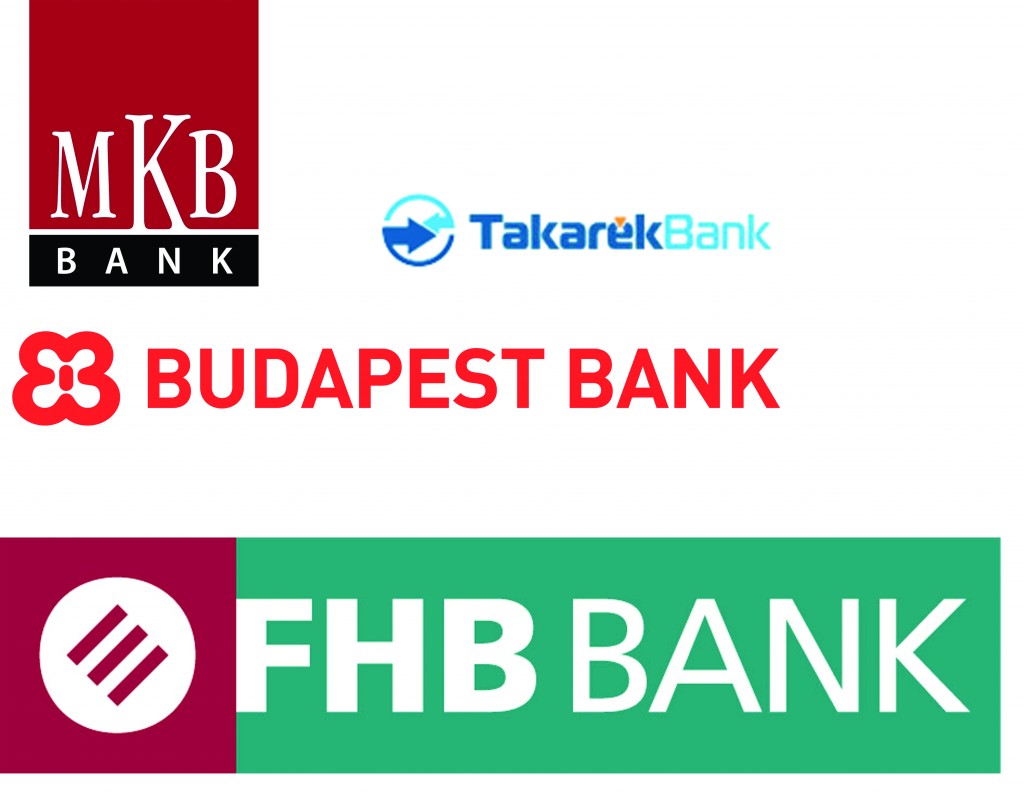Deals of the year for 2014

THE FOLLOWING IS FROM THE DEC. 12-JAN. 15 PRINT EDITION:
Every year, the Budapest Business Journal looks back at some of the most significant deals of the past 12 months. Since only a fraction of these are made public, and of the few that are, only a minority disclose a transaction value, the task is a real challenge. Due to the lack of transparency and reliable data on the transactions market, the results are based not only on publicly available facts, but also on expert opinions gained during our numerous consultations with some of the industry’s most well-known and best-respected specialists (see list at bottom of this article), as well as on subjective judgments.
In compiling the list, we have separated market transactions involving private individuals and/or enterprises from deals in which the state was the buyer. Increasing government activity continued to dominate Hungary’s transaction landscape in 2014 in several sectors. In an attempt to reverse earlier privatizations to boost its role in industries considered strategically important, the government has nationalized further companies.
STATE DEALS
FINANCIAL SECTOR
The acquisition of Budapest Bank will raise the percentage of the banking sector in Hungarian hands to well over 50%, a threshold earlier set as a goal by the government.
MKB
The biggest deal in the financial sector was Bayerische Landesbank’s sale of its Hungarian subsidiary MKB Bank, which closed in September. In return for the purchase price of €55 million, BayernLB waived €270 mln in claims due from MKB prior to the transfer. As a result of the deal, BayernLB will be fulfilling all of the EU’s main requirements regarding disposals of investments well before the deadline, which was the end of 2015. The MKB sale was apparently a huge relief for the German side.
Budapest Bank
In December, the Hungarian government signed a preliminary deal to buy Hungary’s eighth largest bank, Budapest Bank, from its 100%-owner General Electric by June 30. The buyer will be Corvinus Nemzetközi Befektetési and the Hungarian Development Bank (MFB Zrt.) will ensure funding for the acquisition.
Takarékbank
In August, the state completed the sale of its majority shares in Takarékbank, an umbrella bank for Hungary’s savings cooperatives, to Magyar Takarék with national postal company Magyar Posta’s transfer of its TakarékBank shares. Magyar Takarék is a company registered in 2014 with shareholders including FHB Bank, 14 savings cooperatives, and a small state-owned firm EHPSZ, which is run by Tamás Vojnics, the government-appointed commissioner responsible for the bank’s takeover.
The Takarékbank saga started in November 2012, when the state-owned MFB bought a 38.46% stake in the bank from Deutsche Zentral Genossenschaftsbank AG (DZ Bank). Magyar Posta acquired a majority stake in the bank through a HUF 655 mln capital increase in August 2013. Combined with MFB’s 38.46% stake, Posta’s 20% gave the state a 58.46% stake in Takarékbank. This was sold to Magyar Takarék for more than HUF 9 billion in March 2014. FHB acquired a 25% direct stake in Magyar Takarék for HUF 252 mln in February 2014.
FHB, Kereskedelmi Bank
Magyar Posta bought a 49% stake in FHB’s commercial banking unit FHB Kereskedelmi Bank for HUF 28.5 bln in September 2014. The bank remained a fully consolidated subsidiary of FHB Mortgage Bank after the transaction. Total assets of FHB Kereskedelmi Bank were HUF 540.8 bln as of September 30, 2014. After Magyar Posta and FHB Mortgage Bank signed a strategic agreement in 2013, they acquired utility billing management company Díjbeszedő Holding (DBH). FHB also bought a 50% indirect stake in Magyar Posta Investment Zrt. to sell investment products and services in post offices.
Giro Zrt.
Hungary’s central bank MNB acquired a 86.21% stake in interbank clearing company Giro Zrt., and it aims to increase this to 100%. According to analysts, this could cost altogether HUF 9.5 bln. Giro was owned by 22 banks including MNB.
ENERGY
Főgáz
The Hungarian state bought the Budapest local council’s stake in gas distributor Főgáz for HUF 41.8 bln in October 2014. Főgáz is expected to become the base of a state-run, non-profit public utility holding company to be set up by March 2015. The state-owned Hungarian Electricity Works (MVM) acquired a stake of just less than 50% in the company from German utilities company RWE for HUF 41 bln in 2013.
TELECOMMUNICATION
Antenna Hungária
The National Development Ministry (NFM) together with National Infocommunications Service Zrt. (NISZ) closed the transfer of Antenna Hungária (AH) in June 2014. The ministry announced in March that NISZ would buy AH from France’s TDF for HUF 56 bln. TDF’s decision is in line with its strategy of pulling out from Central and Eastern Europe. AH was thus renationalized nine years after it was sold to Swisscom Broadcast AG, which delisted the company’s shares from the BSE. TDF purchased 100% of AH for HUF 80.7 bln in 2007.
AH’s main activities include national terrestrial television, and radio broadcast network services, Pay TV program distribution, hosting and maintenance services to telecommunication operators, and corporate telecommunications solutions. The ministry said that the acquisition is “in line with the government’s strategy to place public utilities under public ownership as well as with the National Infocommunication Strategy.”
IT
Welt 2000
In November 2014, the Hungarian state bought privately owned software company Welt 2000 Kft., which developed and owns the software that manages the EU tendering processes and distribution of funds. Welt 2000 was awarded a beneficial contract that made the organizations managing EU funding applications and money distribution through this platform highly dependent on the company. After several failed attempts by the state to buy the source code or the entire company, a deal was finally reached and Welt 2000 is now 100% state-owned.
TRANSPORTATION
Bombardier Transportation, MÁV Hungary
The Hungarian Asset Management Company (MNV Zrt.) bought a 64.9% stake in Bombardier Transportation MÁV Hungary from Germany’s Bombardier Transportation GmbH. The purchase price was reportedly €6.9 mln. The government declared the transaction to be of “national strategic significance”, so it was not subject to the approval of the Competition Office. The company is a joint venture of the German firm and the Hungarian railway company MÁV, which has a 25% stake. Bombardier, which makes train carriages in Hungary, had a net loss of HUF 260 mln on HUF 6.7 bln revenues last year. Net assets stood at HUF 3.2 bln.
PRIVATE DEALS
Although last year’s unfavorable trends continued in 2014, the transaction market significantly picked up in H2. The number of transactions increased and, in addition to private equity deals, the market saw more M&A deals with strategic investors. In addition, several big international firms have announced plans to scale back their presence in the CEE region, such as Lukoil, Sanoma and Citibank. As for fields of investments, the media sector and IT were very popular
SAYING GOODBYE TO THE REGION
Citi
In October, Citigroup announced plans to exit consumer banking in 11 markets including Hungary, as CEO Michael Corbat seeks to simplify the firm and boost returns. The bank said this is a strategic move to focus on the 24 markets that bring it the most revenue and added that it would continue business services here. The other country in the region that Citi is leaving is the Czech Republic.
Sanoma
Central Group Media Holding Kft. acquired print and online publisher Sanoma Budapest Zrt. for HUF 17 bln. Sanoma said that the divestment is in line with its strategy to focus its operations and divest selected ownerships. In 2013, the net sales of Sanoma’s Hungarian media operations totaled some €60 mln. Central has already started selling Sanoma’s assets, including job site profession.hu for HUF 8 bln as well as Sanoma Digital Media Zrt. with two TV channels Story 4 and Story 5.
Lukoil service stations
Russian oil company Lukoil sold its Hungarian, Slovakian and Czech service stations for a combined total of €200 mln. Hungary’s Norm Benzinkút acquired 100% of the shares of Lukoil Magyarország and of Lukoil Slovakia in October. Lukoil sold 75 fuel stations in Hungary and 19 stations in Slovakia. Lukoil also agreed to sell its 44 Czech fuel stations to Slovnaft, the Slovak unit of Hungarian oil and gas company MOL. Norm was set up in March 2014 and it is 50%-50% owned by the Hungarian companies Benczúr and Imfa, both involved in the wholesale oil trade.
With the acquisition, MOL has 318 service stations in the Czech Republic, or more than 10% of the retail market. The Hungarian company also intended to buy the Lukoil stations in Hungary and Slovakia. In 2013, MOL bought the Czech, Slovak and Romanian units of Italy’s ENI, acquiring 208 filling stations.
RE-ORGANIZING ENTIRE SECTORS – MEDIA
Ringier Axel Springer Media AG
Following approval from the Hungarian antitrust and media authorities and the divestment of parts of their Hungarian portfolios, the transfer of the assets of Ringier AG and Axel Springer SE to Ringier Axel Springer Media AG is now being effected. The portfolio consists of the leading boulevard brand Blikk, successful women’s magazines and licensed titles such as Auto Bild, Glamour and Geo.
At the end of August 2014, Ringier Axel Springer Media AG entered into an agreement to buy leading Hungarian job portal profession.hu. After the completion of the transaction, which is subject to the approval of the Hungarian antitrust authority, the company’s digital revenue share in Hungary will be around 20%.
Axel Springer and Ringier withdrew a request for approval from the GVH to consolidate their holdings in Hungary in 2011 because the merger was opposed by the Media Council, whose decision is binding for the antitrust authority. Since then, the companies have taken steps to part with some assets in their Hungarian portfolios to comply with competition requirements.
It was Vienna Capital Partners that acquired the major part of the Hungarian operations of the companies. The new publishing group Mediaworks has more than 700 employees and 63 media brands. The company expects to generate a turnover of HUF 15-16 bln. The main elements of its portfolio are sports daily Nemzeti Sport, business daily Világgazdaság and Népszabadság, the market leading broadsheet paper, as well as eight regional dailies and several magazines. The media house also owns a cold-set printing plant and holds a majority position in Medialog Kft., a distribution company. Earlier this year, Axel Springer sold a number of regional newspapers, TV program guides, and women’s magazines to Funke Mediengruppe.
Ringier Axel Springer Media AG was founded in 2010 when the two companies merged their activities in Central and Eastern Europe. The company operates in Poland, Serbia and Slovakia and employs about 2,300 employees.
HVG
Germany’s Funke Group sold its majority stake in the Hungarian economic weekly HVG to minority owner Szerkesztőségi Vagyonkezelő, a company held by the magazine’s employees. The group decided to review its operations in the Central and Eastern European region after it spent nearly €1 bln on the purchase of the German regional papers from Axel Springer. Funke became HVG’s majority owner in 2003.
THE HOTTEST SECTORS: IT AND BIOTECH
IND Group
London-based financial software provider Misys acquired Hungary’s IND Group, a specialist in online and mobile banking and personal finance management systems in February 2014. The purchase price was not disclosed, but analysts put it at around HUF 18-23 bln. The company said that the acquisition would add consumer-oriented systems to Misys’ core banking capabilities. IND Group achieved more than HUF 5 bln revenues last year and has close to 40 banks among its clients in 15 countries in Europe and the Middle East.
Prezi
Two American growth equity firms, Spectrum Equity and Accel Partners, have invested a combined $57 mln in presentation software company Prezi. In 2011, Accel Partners and Sunstone Capital invested a joint $14.5 mln in the company. The number of registered Prezi users has almost doubled, exceeding 50 million in the past year.
MEDinnovest
Budapest-based venture capital fund manager Alliance Jura-Hongrie invested HUF 420 mln in Hungarian health industry group MEDinnovest. The venture capital fund has acquired a minority stake in the group, which is majority owned by three Hungarian doctors. The investment is for four-six years and the expected return is 25%. MEDinnovest was set up this year, but several of its units have been operating in pediatric care and research for several years.
ENERGY
E.ON district heating plants
The energy sector saw a couple of private deals last year. Dalkia Energia announced in September 2014 that it had reached an agreement with E.ON Hungaria to buy two district heating plants in Debrecen and Nyíregyháza. The transaction will raise the number of Dalkia’s retail district heating clients from 67,000 to almost 110,000. The number of institutional district-heating clients it serves will rise from several thousand to tens of thousands. E.ON said that in the future E.ON Hungária group intends to focus on developing and operating national energy infrastructure belonging to the company.
Sinergy
Hungarian energy services provider Alteo signed an agreement to buy 100% of peer Sinergy from the local units of Germany’s RWE-EnBW for an undisclosed price. The company would finance the acquisition with the proceeds of bonds issued this year. The transaction is subject to the approval of Hungary’s competition and energy authorities as well as on fulfilling conditions specified in the sales contract. Alteo had revenues of HUF 6.2 bln last year, while Sinergy booked a slight loss on sales of HUF 4.2 bln.
FINANCIAL SECTOR
Credigen Bank
The central bank’s Financial Stability Council has approved the acquisition of Credigen Bank by Questor Securities and Investment Zrt. As Credigen has no loans or deposits, the new owner has acquired a banking license, basically. Credigen’s owner Sofinco, a Credit Agricole Consumer Finance S.A. unit, decided to leave Hungary in 2010. Budapest Bank bought most of the bank’s clients in 2012. OTP considered buying the bank in 2013.
MANUFACTURING
Agrofert
The Czech Agrofert Holding owned by Andrej Babis, the Czech Minister of Finance and President of the Yes (ANO) movement bought Hungarian sunflower oil manufacturer NT Kft. in April. NT has 196 employees and its sales revenues reached €140 mln in 2013. Agrofert also owns the Ceres bakery, the IKR Agricultural and the Devecser-based Agro Chemical agricultural companies in Hungary.
GREENFIELD INVESTMENT OF THE YEAR
Denmark-based global toy manufacturer LEGO opened its modern factory built through a €354 mln greenfield investment in Nyíregyháza, in eastern Hungary in March 2014. The manufacturing area, built in less than 12 months, sprawls across 122,000 square meters. The project created 250 new jobs in a less-developed region of Hungary. Until 2008, the LEGO plant had been operated by Flextronics, which produced toys for the Danish company under a contract. In 2008, Lego acquired the plant from Flextronics.
JEREMIE EXIT OF THE YEAR
Hungary’s second successful JEREMIE exit, the only one this year, took place in 2014, when Massachusetts based Waters Corporation acquired MediMass’s Rapid Evaporative Ionization Mass Spectrometry (REIMS) technology. The REIMS technology represents all of the assets of MediMass and includes patent applications, software, databases and REIMS expertise. REIMS is the enabling technology for the “Intelligent Knife” or “iKnife”, a device in the conceptual stages of development that could in the future potentially be used for real-time diagnostics in surgery. “The acquisition is proof of the ability of Hungarian science to develop world class innovations that may lead to improved patient care,” said Ákos Tallós of MediMass Ltd.
MediMass was launched in 2008 and three years later Euroventures IV, a JEREMIE co-investment fund, along with other investors, committed several rounds of equity financing in the range of €1-1.5 mln in order to take the project to the prototype phase when a strategic partner can be found.
TRANSACTIONS ON BSE
Norbi Update Lowcarb Nyrt.
The IPO of Norbi Update Lowcarb, a Hungarian company that runs a lifestyle and nutrition franchise system, successfully closed in October 2014. Investors subscribed 831,764 shares at an initial price of HUF 990 apiece. The shares on offer accounted for 34-35% of registered capital. The owners aim to use 84% of the proceeds to carry out a private capital increase. The shares will be listed in the Standard category of the BSE. Schobert said earlier that the company wants to expand its franchise network in seven more countries. At present, the company has 115 shops in five countries.
Alteo
Hungarian energy supplier and trader Alteo sold five-year zero-coupon bonds with a nominal value of HUF 925 mln in a private placement in July 2014. The corporate bonds have a yield of 7.5%. Alteo said it would use the proceeds from the sale to fund acquisitions.
FAILED DEALS OF THE YEAR
Increased volumes of deal activity means more opportunities to fail. However, most of these deals remain unknown for the public, as it could hurt the reputation of the acquirer and the seller as well as that of their advisors. Apparently rumor killed the sale of Raiffeisen Bank in January 2014. Széchenyi Bank shareholder István Töröcskei said, “the whole thing was hastily leaked to the public and that is in part why things turned out the way they did”.
Most experts asked by the BBJ agree that the biggest failed deals have been in the banking sector. Several banks in Hungary have been up for sale for years, but who would buy one in such a business environment? The MNB recently predicted that only five big banks will remain in Hungary once the market consolidation is completed.
As the details of the other failed deals have not been leaked, the sale of Raiffeisen is the winner of this category. Austria’s Raiffeisen Bank International decided not to sell its Hungarian unit following media reports and speculation that a deal was imminent; Széchenyi Bank was to acquire RBI’s entire Hungary-based operation for the token sum of €1. Raiffeisen reportedly decided against doing the deal on the grounds that selling at a reduced price would trigger losses the bank was not prepared to accept. Széchenyi Bank itself is now under liquidation.
THE BIGGEST DISAPPOINTMENT
The promising fundamental story of Business Telecom seems likely to end in a failure due to liquidity and financing troubles. This is another blow to Hungary’s fragile corporate bond market after the E-Star drama. In November, BTel’s shares were removed from the bourse’s main BUX and BUMIX index because of disclosure shortfalls. A few days later the MNB fined BTel HUF 3.5 mln for failing to comply with disclosure regulations. Shortly after, the BSE fined the company HUF 3 mln for the same offence and for not paying fees to the bourse. Magyar Telekom is also suing the company for HUF 944 mln in service fees and related taxes, and an investor has initiated a liquidation procedure against BTel.
The BBJ would like to thank the following for their contributions to this article: Buda-Cash analyst Bálint Török; Deloitte managing partner Béla Seres; Equilor Corporate Finance manager Ágnes Svoób; Falkenburg Corporate Finance partner Gábor Kurutz; Jalsovszky Law Firm senior associate Ágnes Bejó; KCG Partners Law Firm partner Eszter Kamocsay-Berta and KPMG director Tamás Simonyi; PwC partner Miklós Fekete; and Videoton CEO Ottó Sinkó.
SUPPORT THE BUDAPEST BUSINESS JOURNAL
Producing journalism that is worthy of the name is a costly business. For 27 years, the publishers, editors and reporters of the Budapest Business Journal have striven to bring you business news that works, information that you can trust, that is factual, accurate and presented without fear or favor.
Newspaper organizations across the globe have struggled to find a business model that allows them to continue to excel, without compromising their ability to perform. Most recently, some have experimented with the idea of involving their most important stakeholders, their readers.
We would like to offer that same opportunity to our readers. We would like to invite you to help us deliver the quality business journalism you require. Hit our Support the BBJ button and you can choose the how much and how often you send us your contributions.







